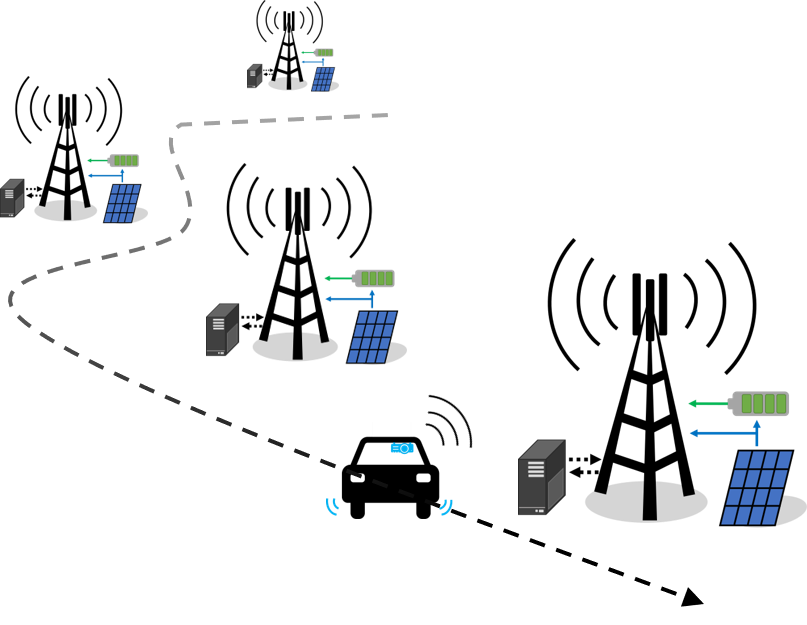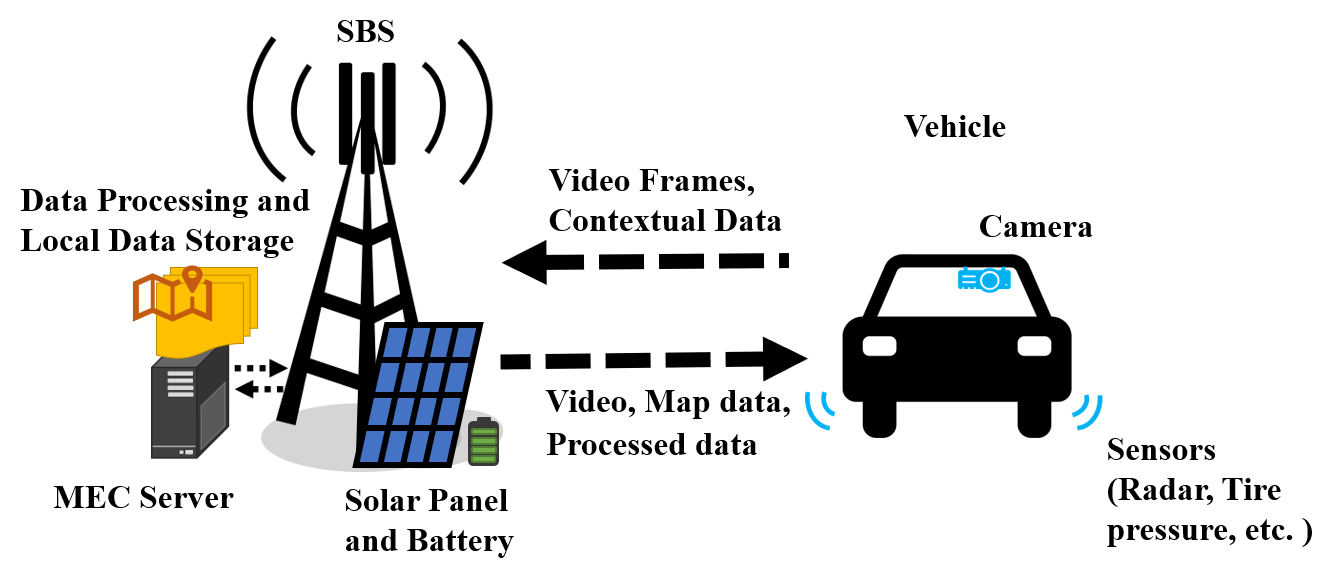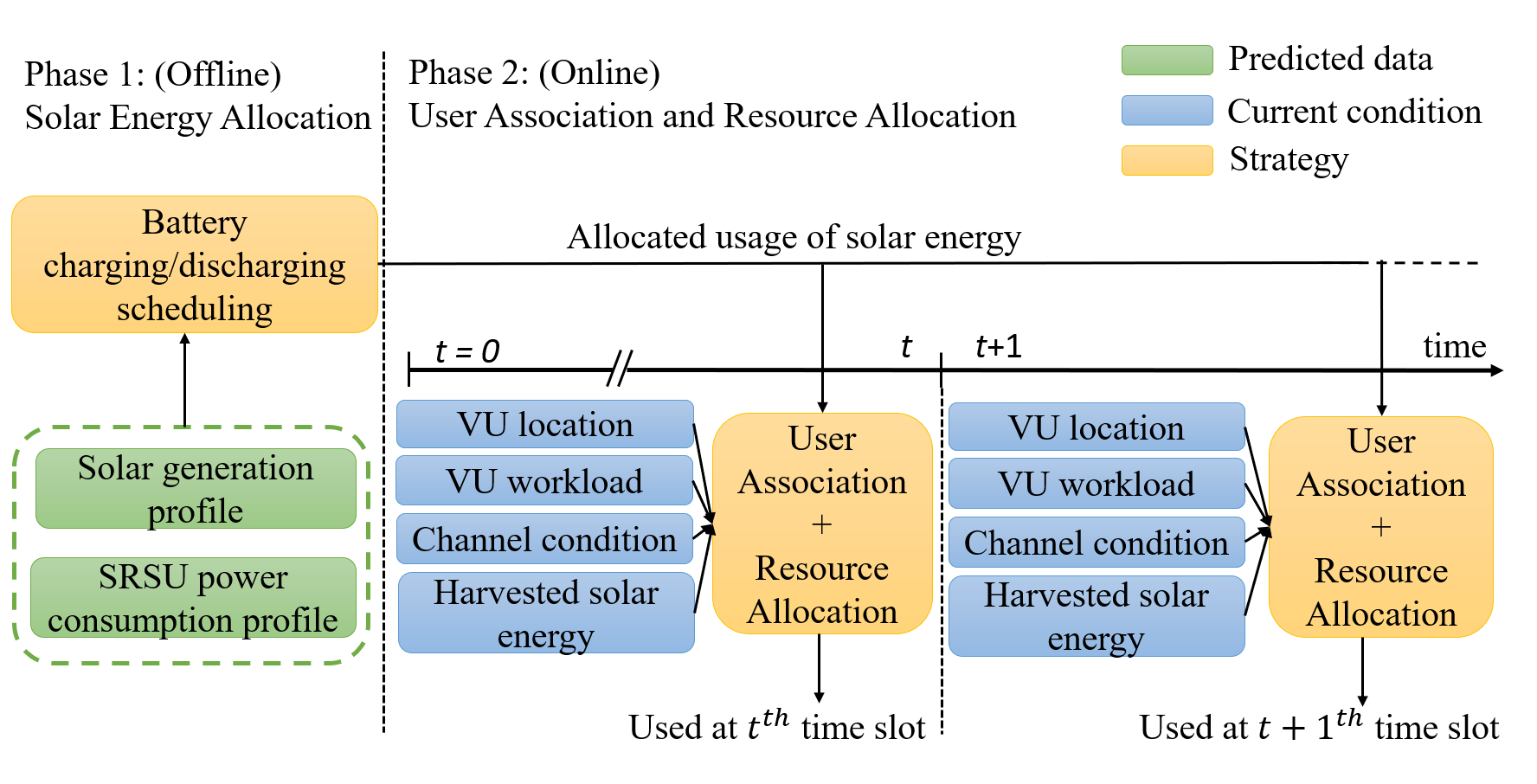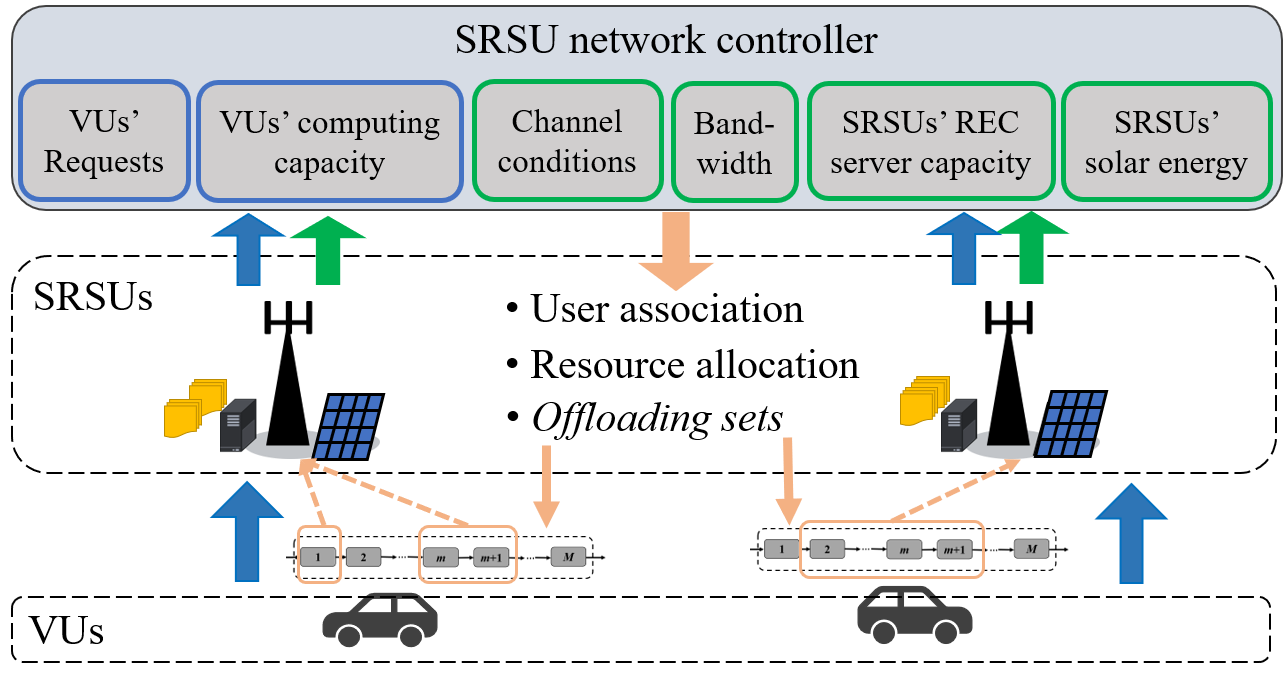Quality of Service Optimization for Vehicular Edge Computing with Solar-Powered Road Side Units
Based on a previous project "Renewable-energy-aware-video-download-cellular-networks", we expand our approach to heterogeneous networks consisting of RE-powered small cells and mobile edge computing (MEC) server. The objective is to demonstrate the feasibility of small cells powered only by renewable energy, maximizing the longevity of such RE-powered small cells while ensuring the satisfaction of application QoS and minimize service outage of edge-computing based services performed by the MECs associated with such small cells. We decided to focus on a demanding use case for small cells with MEC: Vehicular Edge Computing (VEC) for future assisted and autonomous vehicles.
In this emerging use case, solar-powered roadside units (SRSUs), consisting of small cells with Mobile Edge Computing (MEC) server, are used to provide ultra-low latency services for passing vehicles. We aim to develop techniques to minimize the QoS loss in terms of service outage for the offloaded vehicular applications. Our proposed approach is to mitigate the temporal and spatial mismatch of the solar power generation and power consumption of SRSUs through battery charging/discharging management, vehicle association, and SRSU resource allocation strategies. The proposed approach 1) schedules charging/discharging of the batteries of SRSUs based on prediction of the solar generation and the power consumption profile of SRSUs, 2) determine optimal vehicle association and SRSU communication and computing resource allocation for minimal loss of QoS.
 |  |
A. Offiline Approach
In this paper, we model the problem with three sub-problems, the SRSU power consumption minimization problem, the temporal energy balancing problem and the spatial energy balancing problem. Three algorithms are proposed to solve the above sub-problems, and they together provide a complete offline, iteratively joint battery charging and user association control algorithm, QoS Loss Minimization (QLM) algorithm, to minimize the QoS loss under delay constraint of the offloading tasks. Results with a simulated urban environment using actual solar irradiance and vehicular traffic data demonstrates that the proposed solution reduces the QoS loss significantly compared to greedy approaches.

B. Online Approach
We formulate a QoS optimization problem for vehicles and solve it in two phases: an offline solar energy allocation phase (Phase 1), and an online SRSU power consumption balancing phase (Phase 2). Then we propose a two-phase QoS loss Minimization Algorithm (TQMA), consisting of an offline scheduling algorithm for battery charging/discharging, and an online and real-time algorithm of vehicle association and resource allocation. Compared to project A, this new algorithm depends only on the prediction of solar generation and SRSU power consumption instead of precise prediction of vehicular traffic and offloading task demands.

C. Sustainable Vehicular Edge Computing Using Local and Solar-Powered Roadside Unit Resources
We explore a sustainable solution to growing vehicular computing and communication needs by utilizing edge computing and communication resources of a network of Solar-powered Roadside Units (SRSUs), along with any vehicular computing resources available. An SRSU consists of a small cell base station (SBS) and a road-edge computing (REC) node, is powered by a low-cost solar system. VUs can offload their vehicular application tasks to SRSUs to receive high throughput and low latency services. However, the limited capacity of solar energy, REC computing, and bandwidth resources may cause service disruption and affect the Quality of Service (QoS) that VUs receive. To minimize such QoS loss, we formulate a dynamic offloading QoS loss minimization problem, where the different subtasks of a VU application are optimally executed either locally using the VU computing resource or remotely using the REC resource, considering the energy, computing and bandwidth constraints of the SRSU network. We then propose to solve it by a heuristic algorithm, Dynamic offloading User association and Resource allocation for QoS loss minimization (DURQ) algorithm, which jointly makes the optimal user association, subtask offloading, and SRSU resource allocation decisions.

This project is sponsored by: 
